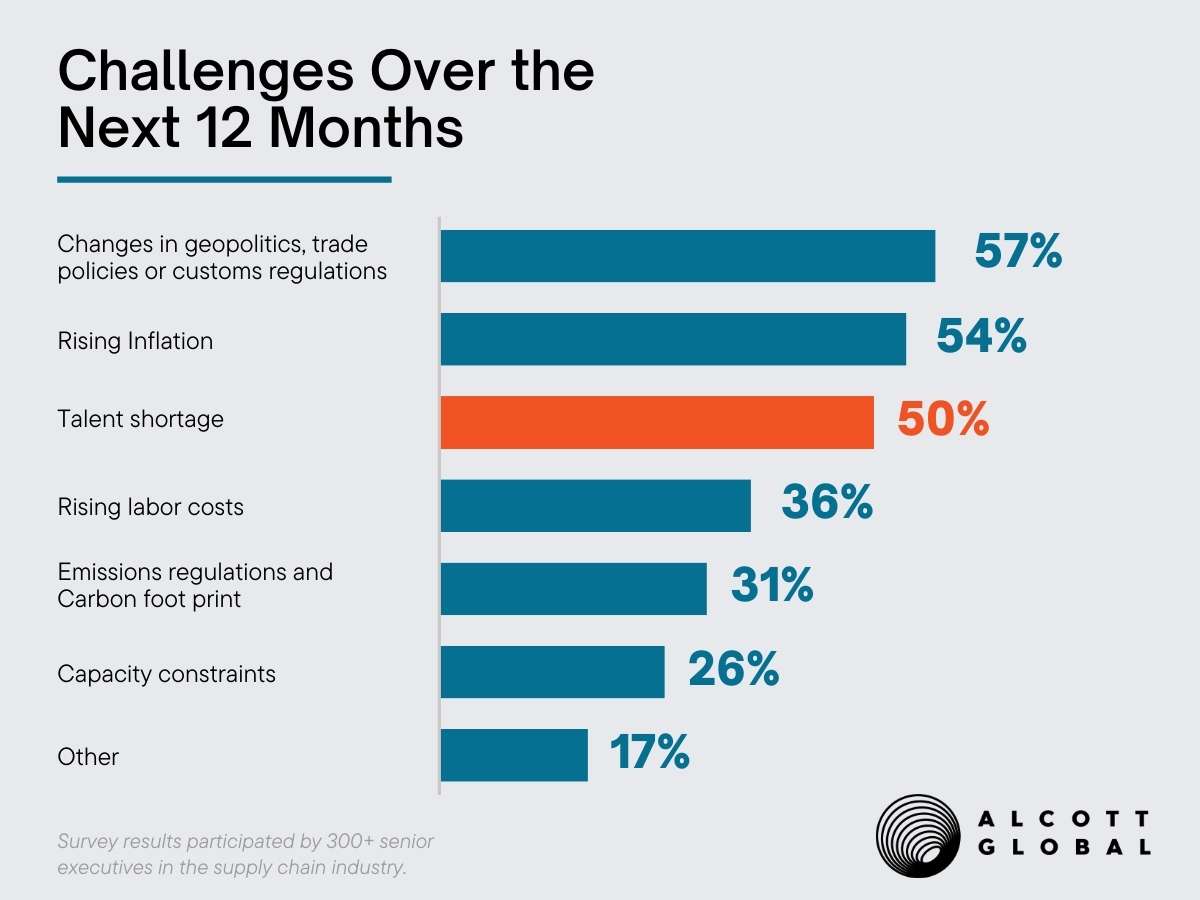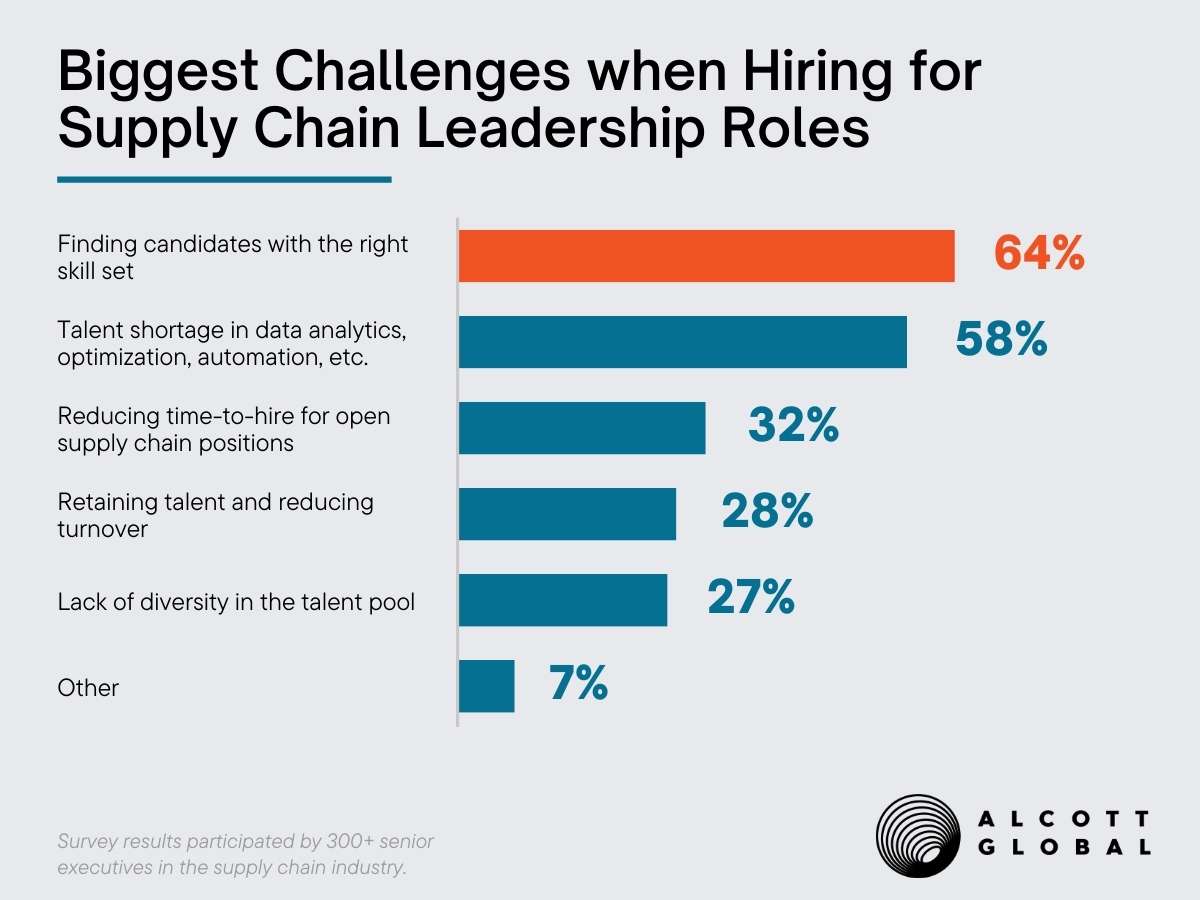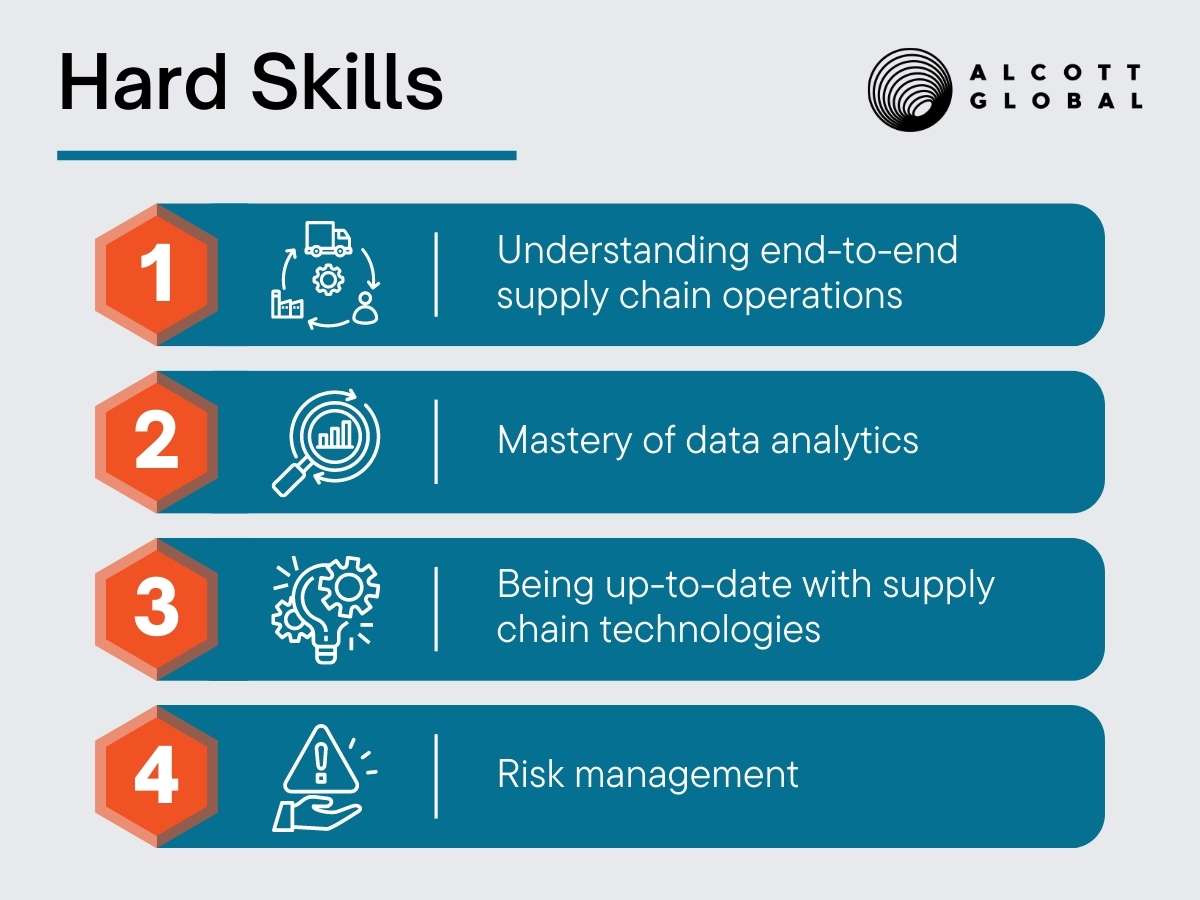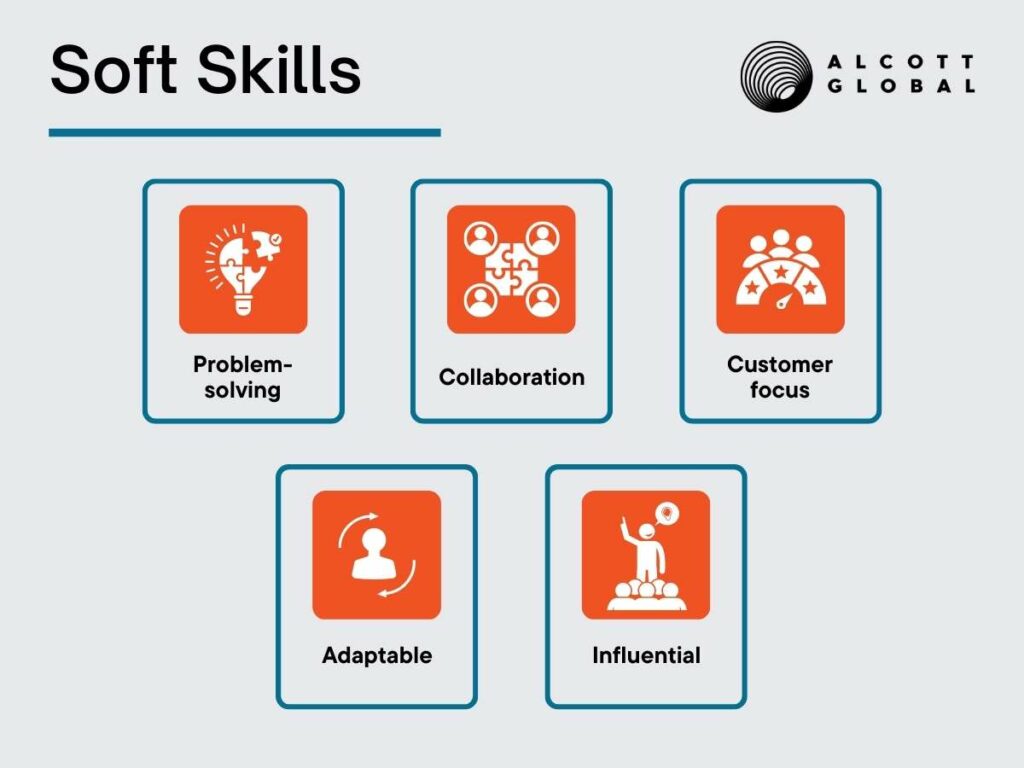The Industry Today
Amidst the pandemic, we came to recognize the significance of supply chains and supply chain professionals. As we navigated through various disruptions such as lockdowns, port congestions, and fluctuating demand patterns, it became evident that the efficiency, adaptability, and strategic decision-making of these professionals were indispensable in maintaining supply chains. While it is in the post-pandemic era that we truly comprehend the immense value of exceptional supply chain executives. The term “exceptional” emphasizes the necessity for individuals who possess not only the fundamental knowledge and skills of supply chain management but also the ability to tackle unprecedented challenges and rapidly changing landscapes.
However, there is an impending problem, hiring for these leadership roles in supply chains could be a toll given the ever-dynamic nature of the industry, coupled with the increasing complexity of global supply chains driven by technology, sustainability, and changing market dynamics. True enough, in a recent study conducted by Alcott Global, which involved the participation of over 300 senior executives in the supply chain industry around the world, it was revealed that a significant 50% of the respondents acknowledged the existence of a talent shortage within the field. (see Exhibit A) This finding emphasizes the pressing need for skilled professionals and leaders in the supply chain sector.

(Exhibit A: Challenges Over the Next 12 Months)
Moreover, the study also shed light on another critical aspect of hiring in the supply chain industry. Out of the surveyed executives, a substantial 64% highlighted that their primary challenge in the recruitment process for supply chain leadership roles lies in finding candidates who possess the appropriate skillset. (see Exhibit B)

(Exhibit B: Biggest Challenges When Hiring for Supply Chain Leadership Roles)
This aspect further underscores the difficulties faced by organizations in identifying and securing individuals with the necessary qualifications and expertise to effectively lead and manage complex supply chain operations.
While companies continue to explore strategies to address these challenges within the supply chain industry, what implications does it hold for individuals like you who aspire and vie for leadership positions in supply chain management?
Future-proofing yourself with essential skills
Did you know that you can be an answer to this impending supply chain crisis?
By consciously building your career toward a specific goal is important because it allows you to have control and direction over your professional growth and development. An Alcott Global study has identified several essential hard and soft skills that could spell success for a supply chain management leader.
Build on essential hard skills
Mastery of specific and essential supply chain hard skills is necessary to navigate the complexities of the modern supply chain landscape.
The same survey, mentioned in the first part of this article, identified common essential hard skills that are required for supply chain leadership roles:
- Understanding end-to-end supply chain operations is vital and fundamental for making effective decisions and optimizing processes. By having a holistic view of the supply chain, leaders can identify areas for improvement, implement strategies to enhance efficiency, and ensure smooth coordination between various stakeholders.
- Mastery of data analytics is a game-changer in today’s data-driven era. The ability to leverage analytics tools and derive valuable insights to make informed decisions, predict demand patterns, and optimize operations. Analyzing large datasets can reveal trends, identify bottlenecks, and uncover opportunities for improvement.
- Technology is a catalyst for innovation and being up-to-date with supply chain technologies allows leaders to make informed and innovative decisions, remain competitive, and adapt to the vastly-evolving supply chain industry.
- Risk management ability enables leaders to quickly adapt and respond to unexpected events, such as supply chain disruptions, natural disasters, or geopolitical changes. This is crucial for maintaining business continuity despite possible unforeseen circumstances.
- Effective inventory management is key for maintaining optimal stock levels, minimizing costs, and maximizing customer satisfaction. A deep understanding of inventory optimization techniques and demand forecasting methodologies is a must for supply chain leadership roles as it allows them to accurately predict demand patterns, ensuring that the right products are available at the right time and in the right quantities.

(Exhibit C: Hard Skills)
Do not sleep on the soft skills
While hard skills are fundamentals in supply chain practice in general, soft skills are equally important. These skills are not isolated competencies but rather interconnected elements that are highly relevant to one another in the field of supply chain management.
Supply chain leaders have identified several crucial soft skills that are relevant to supply chain management success (see Exhibit D).

(Exhibit D: Soft Skills)
Problem-solving is the foundation upon which successful supply chain operations are built. Having strong problem-solving skills help address challenges efficiently, whether it’s addressing logistical issues, resolving bottlenecks, or mitigating disruptions.
Collaboration is essential in supply chain management due to its inherently interconnected nature. Collaborating makes things work seamlessly with various stakeholders to ensure smooth operations and optimal outcomes while maintaining open communication, strong relationships, and aligned goals across the supply chain network.
Customer focus is a critical soft skill in supply chain management. Understanding customer preferences, anticipating demands, and aligning strategies accordingly are essential to hit the ultimate goal of aiming to meet customer needs and provide exceptional service.
Supply chain leaders must strike the balance between being adaptable and at the same time influential. Adaptable in a sense that leaders must keep up with changing market dynamics, emerging technologies, and unexpected disruptions. And influential by effectively persuading and gaining support from various stakeholders. Whether negotiating with suppliers, presenting new strategies to colleagues, or influencing decision-makers to bridge gaps, build consensus, and resolve conflicts.
Taking the next steps
While developing these hard and soft skills might take time, the survey responders have weighed in a few strategies that supply chain professionals can consider, to upskill:
- Stay up-to-date with industry trends and best practices by attending supply chain conferences and workshops.
- Find a mentor with extensive experience in supply chain management who can provide guidance and insights.
- Build a strong network within the supply chain industry, attend networking events, and join professional associations to learn from industry experts and stay informed.
- Take advantage of internal training offered by your organization or external training programs focused on supply chain management to enhance your technical skills.
- Engage in cross-functional training to gain a broader understanding of different areas within the supply chain, such as logistics, procurement, and inventory management.
- Consider pursuing further studies, such as certifications or advanced degrees in supply chain management, to deepen your knowledge and expertise in the field.
The supply chain industry, in today’s context, is where the businesses’ competitive edge is created. It’s constantly evolving, presenting both opportunities and challenges for professionals, specifically those who aspire for leadership roles. To thrive in this dynamic field, it is crucial to recognize the significance of continuously developing hard and soft skills.
As Shellye Archambeau, Board Director Verizon, Nordstrom, Roper Technologies, Okta mentioned in Episode 93 of Leaders in Supply Chain Podcast:
“People will tell you when you graduate, be ambitious, work hard, and do a great job and good things will happen. And the answer is, no, it won’t. What they should be saying is work hard, be ambitious, and be strategic about your career.”
And to best position yourself, control your narrative, get mentors, consciously plan your career and strategically develop skills that would support your growth in your chosen career of endeavor.





